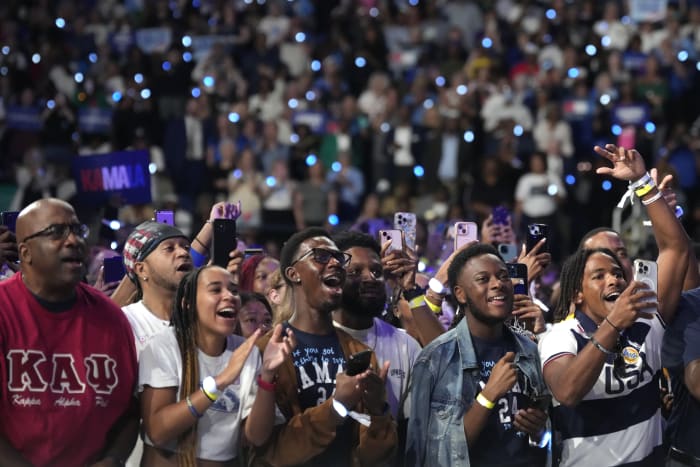Understanding Kamala Harris: A Different Approach to Identity in Politics

WASHINGTON – While President Joe Biden was hosting a celebration of Black excellence at the White House with lawmakers, advocates, and celebrities this past week, Kamala Harris was instead headed off to Pennsylvania.
The nation’s first Black vice president talked with Pennsylvania voters about supporting small businesses, building more housing, and expanding the child tax credit. She said the country “needs a president of the United States who works for all the American people.”
What she did not do was spend time talking about her race or gender or the prospect that she would be the nation’s first Black and South Asian woman to be president if she defeated Republican Donald Trump.
As Harris courts voters, she embodies her identity as a woman of color rather than making it an overt part of her pitch, choosing instead to emphasize her policies and resume.
She will be making her case to minority voters in a number of key settings in the coming days. She is scheduled to speak on Saturday night at a Washington awards dinner sponsored by the Congressional Black Caucus Foundation, conduct an interview with members of the National Association of Black Journalists in Philadelphia on Tuesday, and attend an online rally Thursday headlined by Oprah and involving groups such as “Win with Black Women,” “White Women: Answer the Call,” and ”South Asians for Harris.”
Harris, throughout her career, has been “many different firsts and has never really led with that as a descriptor,” said Brian Brokaw, who managed Harris’ winning campaign for California attorney general in 2010.
“Her life story and her identity and her background and her job experience have all been critical parts of her campaigns,” he said. But he added that “becoming the first — that has never actually been part of her core rationale for why she should be elected a office. It just happens to be an important result of her elections.”
“It’s important, not only for Black young girls, but for girls period,” said North Carolina’s Crystal McLaughlin, who is Black. “If you can see it, you can actually be it.”
Sheila Carter, a Black retiree from Durham, North Carolina, who attended the rally, said, “You see who she is. And as she says, ‘Why bother to even address whether or not I’m Black or Indian or whatever? I am who I am. You see it, I see it, the world sees it.’”
___
Seminera reported from Greensboro, North Carolina. AP Polling Editor Amelia Thomson-DeVeaux contributed to this report.
Copyright 2024 The Associated Press. All rights reserved. This material may not be published, broadcast, rewritten, or redistributed without permission.






